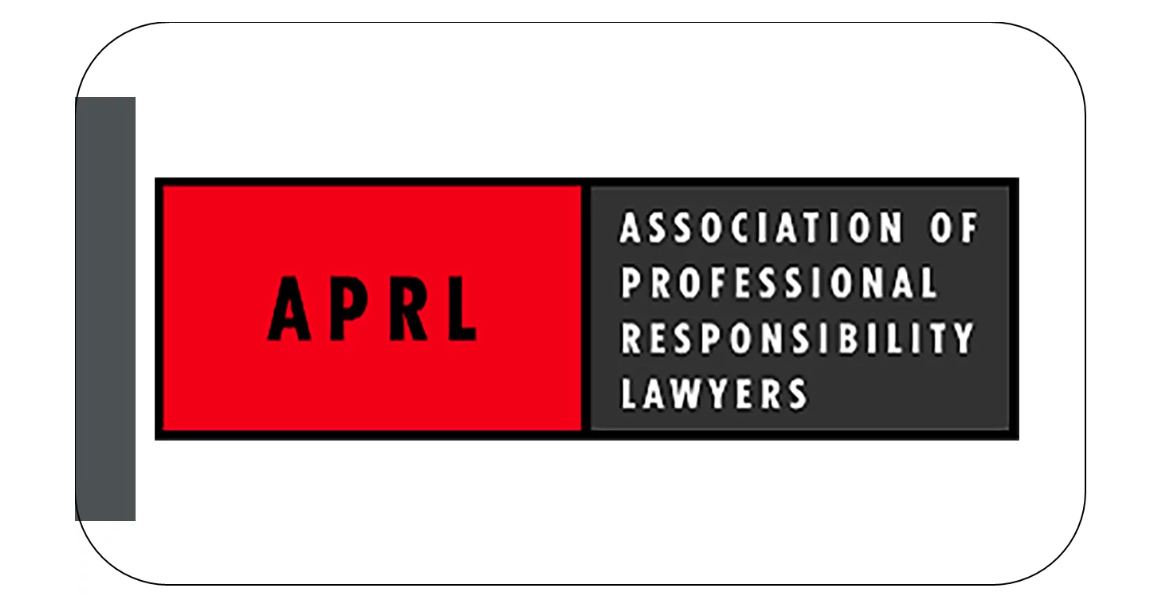
Saying there’s a vital want for adjustments to the ethics rule, the Affiliation of Skilled Accountability Legal professionals has submitted a letter to the president of the American Bar Affiliation urging important revisions to Mannequin Rule 5.4, the long-standing prohibition on attorneys sharing charges with non-lawyers.
The Dec. 12 letter conveys a report written by APRL’s Way forward for Lawyering Subcommittee which requires reforms to accommodate the evolving authorized market whereas sustaining moral safeguards that defend purchasers. The letter was despatched to ABA President William R. Bay by San Francisco lawyer Kendra L. Basner, APRL’s present president.
Within the report, APRL, a nationwide group of over 450 authorized professionals targeted on ethics {and professional} duty, argues that the prevailing rule hinders innovation and restricts entry to justice.
Its proposed revisions goal to strike a steadiness between enabling attorneys to collaborate with non-lawyers and guaranteeing skilled independence.
“We face a brand new set of challenges that require a special strategy,” Basner wrote in her letter, quoting Bay’s personal assertion, delivered in the course of the 2024 ABA annual assembly, on the authorized occupation’s want for change.
“APRL believes that there’s a vital want for adjustments to this ethics rule to deal with the continued, inevitable involvement of non-lawyers in authorized supply programs whereas sustaining rules that defend shoppers,” Basner wrote.
Key Proposed Adjustments
APRL’s proposed revisions to Rule 5.4 would enable attorneys to share charges with non-lawyers beneath particular situations. They embody:
- Sustaining skilled judgment. Legal professionals can be required to retain unbiased skilled judgment, as is already required by current Rule 2.1.
- Supervision of non-lawyers. Legal professionals can be required to oversee non-lawyer contributions in compliance with Rule 5.3.
- Affordable charges. Shared charges can be required to stay cheap, adhering to Rule 1.5 requirements.
- Shopper consent. Legal professionals can be required to acquire consumer consent, in writing, when sharing charges with exterior non-lawyer entities.
The APRL report acknowledges developments relating to the regulation and licensing of different enterprise buildings in Arizona, Utah and Washington, which have examined comparable reforms with promising outcomes. APRL says its proposal supplies flexibility for states to undertake jurisdiction-specific registration necessities.
Rising Requires Change
The ban on sharing charges with non-lawyers, enshrined within the ABA’s Mannequin Rule 5.4 since 1983, was initially meant to guard lawyer independence. Nevertheless, APRL’s report traces the rule’s roots to outdated issues over unauthorized apply of legislation and financial competitors courting again to the nineteenth century.
Regardless of the persistence of Rule 5.4, exceptions to it exist already, the report notes, similar to profit-sharing with non-lawyer workers and fee-sharing with nonprofits
Critics of the prohibition argue that it stifles innovation in authorized service supply. APRL cites examples just like the now-defunct Avvo Authorized Companies platform, which state bar ethics opinions condemned beneath fee-sharing restrictions regardless of the platform’s success in connecting shoppers with reasonably priced attorneys.
“These ethics opinions relied totally on the idea that by sharing charges with a nonlawyer (Avvo), the association jeopardized the attorneys’ capability to train their unbiased skilled judgment in advising and representing their purchasers,” the report says. “No recognized information helps this assumption.”
The Sky Has Not Fallen
APRL’s report factors to jurisdictions which have relaxed fee-sharing restrictions with out experiencing hostile results. Key examples embody:
- Washington, D.C. Non-lawyer possession in legislation companies has been permitted since 1991 beneath restricted situations, with out a rise in ethics violations.
- Arizona. The state eradicated Rule 5.4 in 2021, licensing over 100 ABS entities the place non-lawyers might maintain possession stakes.
- Utah. A regulatory sandbox created in 2020 permits progressive fee-sharing fashions beneath strict oversight, with no proof of hurt to shoppers.
- Worldwide fashions. Nations like England, Wales, and Australia have allowed non-lawyer possession of legislation companies for over a decade, demonstrating that such reforms can coexist with skilled independence.
“Defenders of Rule 5.4 restrictions are inclined to strategy the rule from a perspective that the rule is so vital that any leisure of the rule will probably be catastrophic, that the sky will certainly fall and repercussions of sharing charges with nonlawyers will probably be not possible to regulate,” the report says.
“A evaluate of the jurisdictions which have experimented with nonlawyer charge sharing reveals no such doomsday situation.”
Entry to Justice and Innovation
APRL emphasizes the potential advantages of its proposal for shoppers and the authorized occupation. By enabling attorneys to collaborate with non-lawyers — together with expertise specialists, entrepreneurs, and monetary specialists — legislation companies might ship companies extra effectively and affordably.
Improvements like subscription-based authorized companies, AI-powered authorized instruments, and tech-driven platforms might deal with gaps in entry to justice.
“A big disconnect exists in the US between folks needing authorized help and the provision or affordability of attorneys,” the report says, underscoring the chance to higher serve underserved communities.
A Clarion Name for Change
Whereas APRL’s proposal aligns with profitable experiments in a number of jurisdictions, the ABA has traditionally resisted adjustments to Rule 5.4. The affiliation reaffirmed its help for the prohibition in 2022 via Decision 402, which took the place that innovation can happen with out altering the prohibition on charge sharing by attorneys.
Nonetheless, on this letter to Bay and the accompanying report, APRL encourages the ABA and state regulators to rethink their positions and embrace reforms that align with the trendy authorized market.
“APRL encourages the ABA to guide, moderately than hinder, important regulatory reform that may profit each attorneys and shoppers of authorized companies, and importantly, do no hurt,” APRL’s report concludes.
In her letter, Basner mentioned that APRL hopes to garner help for its proposal not solely by the ABA but in addition by particular person U.S. jurisdictions keen to contemplate adjustments to their very own variations of the rule.
“Whether or not the ABA will probably be as receptive to a clarion name for change doesn’t alter the truth that change is required,” the report says.
